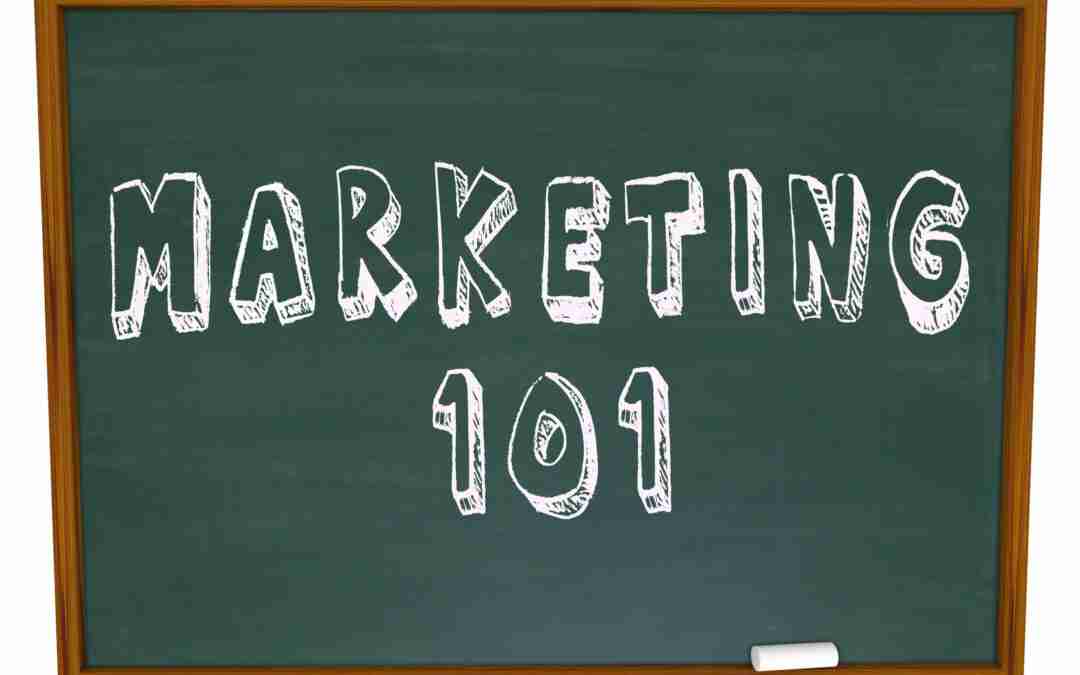Marketing 101: What a Marketing Plan Is, and Is Not
A marketing plan is a written roadmap that documents a company’s short and / or long-term objectives, the strategies and actions necessary to achieve them and the relevant data used to support its forecasts and conclusions.
Among other things it includes a business’s:
- Vision and mission.
- Product and service offerings.
- Targeted audience.
- Pricing policies.
- Sales, revenue and profitability forecasts.
- Distribution channels.
- Communication strategies.
Traditionally, marketing plans covered at least three years, but modern businesses increasingly opt for shorter cycles, something we usually recommend to our small business clients (as long as they’ve established their long-term goals).
In either case it should be updated yearly. It can be for a single product, service or brand, or and entire product line. Simply put, its goal is to bring strategies to life and “wrestle that bear to the ground.” (Fran Tarkington, 2004).
What is a marketing plan NOT?
Although it should be a large part of a full-blown business plan, it is not a substitute for one. Business plans contain additional information, such as:
- Sources of funding.
- Capital equipment lists.
- Balance sheets.
- Historical financial reports.
- Copies of legal documents.
- Income statements.
Moreover, a business plan contains more detailed information on a company’s resources, day-to-day management, operational activities, and capital investments, all of which either feed into, or from, the marketing process.
Good Reasons for Writing a Marketing Plan
The single best reason for writing a marketing plan is in the journey, not the plan. In other words, in order to end up with the final product (i.e. the written plan) its author(s) must conduct relevant research; assess their own strengths and weaknesses; define their goals; set measurement standards and the like. Thus, the process itself will provide you with invaluable insights and incredible peace of mind. Additionally, they’re undertaken to:
- Set objectives as part of a yearly planning process.
- Assess the viability of new business ventures.
- Include in an overall business plan, especially when a company is seeking investment capital.
- Introduce a new product; enter a new market; and / or grow an existing product or service line.
- Document specific, additional strategies for new products, projects, programs, market areas, etc.
Most importantly, however, they provide business people with far better odds of achieving their goals – a topic my co-author and I discuss in detail in our book, “The Procrastinator’s Guide to Marketing” (November 2007, Entrepreneur Press). Just remember this for now:
If you don’t have goals… you don’t need a marketing plan!
Syndication Permissions: If you’d like to use this article on your website or blog, you have our permission as long as you do not alter it in any way and you agree to include the following byline at the end of the article keeping active links back to this site, intact
Mary Eule Scarborough, an unassailable marketing expert and thought leader, helps businesses of all sizes get and keep more profitable customers. She is also:
- A former Fortune 500 marketing executive, …
- The founder of two successful small businesses, …
- An award-winning speaker, …
- A Certified Guerrilla Marketing coach, and …
- Co-author of three books (to-date): “The Procrastinator’s Guide to Marketing“, (Entrepreneur Press, November, 2007), “Mastering Online Marketing” (Entrepreneur Press, January, 2008), and “Guerrilla Marketing On The Internet” (Entrepreneur Press, July, 2008).
- Qualified with a BA in Journalism / English from the University of Maryland, and …
- Qualified with a Masters degree in marketing from The Johns Hopkins University.
Log onto her website: www.StrategicMarketingAdvisors.com for free marketing articles, tools, tips and templates…or to learn more about her books, products and services.

